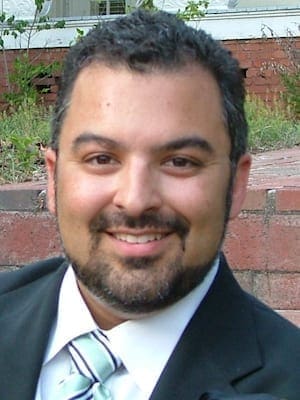July 28 marked the centennial anniversary of World War I’s beginning.
For many, it was the war to end all wars; for powerful clergy that shaped religious and political life in America at the time, it was the very war by which God would usher in his kingdom.
In his book, “The War for Righteousness,” historian Richard Gamble argues that the fervor and idealistic hopes that surrounded the Great War stemmed partly from a liberal theology that promoted war as a way to wage peace.
Little did these progressive pastors know that the war would not only breed more conflict, but would also uncover the misguided notion that the church could successfully align with the state when the state undermines the sanctity of all human life.
To understand the clerical involvement in the Great War, one must understand the roots of progressive theology.
The progressive movement began during the Industrial Age in which theories surrounding scientific evolution were applied to society.
There was a belief that institutions and civilizations—not just individuals—evolved over time, and that progress made for a better society.
While Christians debated the biblical merits of evolution, progressive clergy turned from a heavenly vision of things to come to a this-worldly social gospel that brought reform and regulatory legislation.
This powerful theology—and the legislation that ensued—shaped everything from America’s labor laws to its immigration policies.
Progressive clergy, hailing from northern elitist circles, made friends in high places, including Andrew Carnegie, the Rockefellers, and presidents Theodore Roosevelt and Woodrow Wilson. They applied Christian ethics to curb economic disparity, urban sprawl and ecological degradation.
Although contemporary progressives are well known for their pacifism, progressive stalwarts of yesteryear preached war in advancing God’s kingdom.
Wars may be waged in this progressive thought, according to Gamble, in order to bring “permanent peace.”
At the turn of the century, Christians aggressively applied their social ethics to the mission field and church.
They intended to “Christianize” the nations and form a more perfect union on a global scale.
The outbreak of war in 1914 interrupted this idealism, but made for a new way of progress to come about.
Progressive clergy seemed triumphant about their religious worldview and God’s participation in the war, but they underestimated how the violent ripples and human cost of this Great War—with all of its technological weaponry—would impact history.
Although the “God is Dead” movement resulted from the Holocaust, notions of God’s “absence” came much earlier.
In fact, Christian theology was so closely aligned to political and social movements during the Great War, that people’s faith in God and the church waned once the death tolls started coming in from Europe.
An entire generation of artists, poets, politicians and theologians lamented the violence of war and the ongoing unrest that followed.
Instead of righteousness, the war birthed chaos. Instead of beauty, war cast a gruesome, surrealist shadow.
Instead of the coming kingdom of God, T.S. Eliot’s poetry noted that “The Iceman Cometh.”
In the aftermath of the war, instead of fiery sermons affirming war, progressive clergy repented for mixing religious conviction too closely with political conflict.
It was Harry Emerson Fosdick, a progressive preacher in Manhattan, who penned the hymn, “God of Grace and God of Glory.”
The third verse asks God to “Cure Thy children’s warring madness, bend our pride to Thy control.”
Yet, even today, 100 years after the war, some of us have failed to learn what those progressives soon realized: It is rarely expedient to mix church and state so closely in times of divisive debate and conflict, lest the church be caught up in the state, a man-made institution, and forget the Great Commission.
Also, it is dangerous to side with any nation during a time of war no matter how “moral” a nation’s intentions may seem to be.
Rather, we would do well to avoid war, discern and fight the real spiritual battles that are at the heart of every conflict, and be peacemakers that stand up for nothing other than the sanctity of human life and peace on all battlefronts.
 Joe LaGuardia is senior pastor of Trinity Baptist Church in Conyers, Georgia. He blogs at Baptist Spirituality, where a version of this article first appeared. It is used with permission.
Joe LaGuardia is senior pastor of Trinity Baptist Church in Conyers, Georgia. He blogs at Baptist Spirituality, where a version of this article first appeared. It is used with permission.
Joe LaGuardia is senior pastor of First Baptist Church in Vero Beach, Florida.

